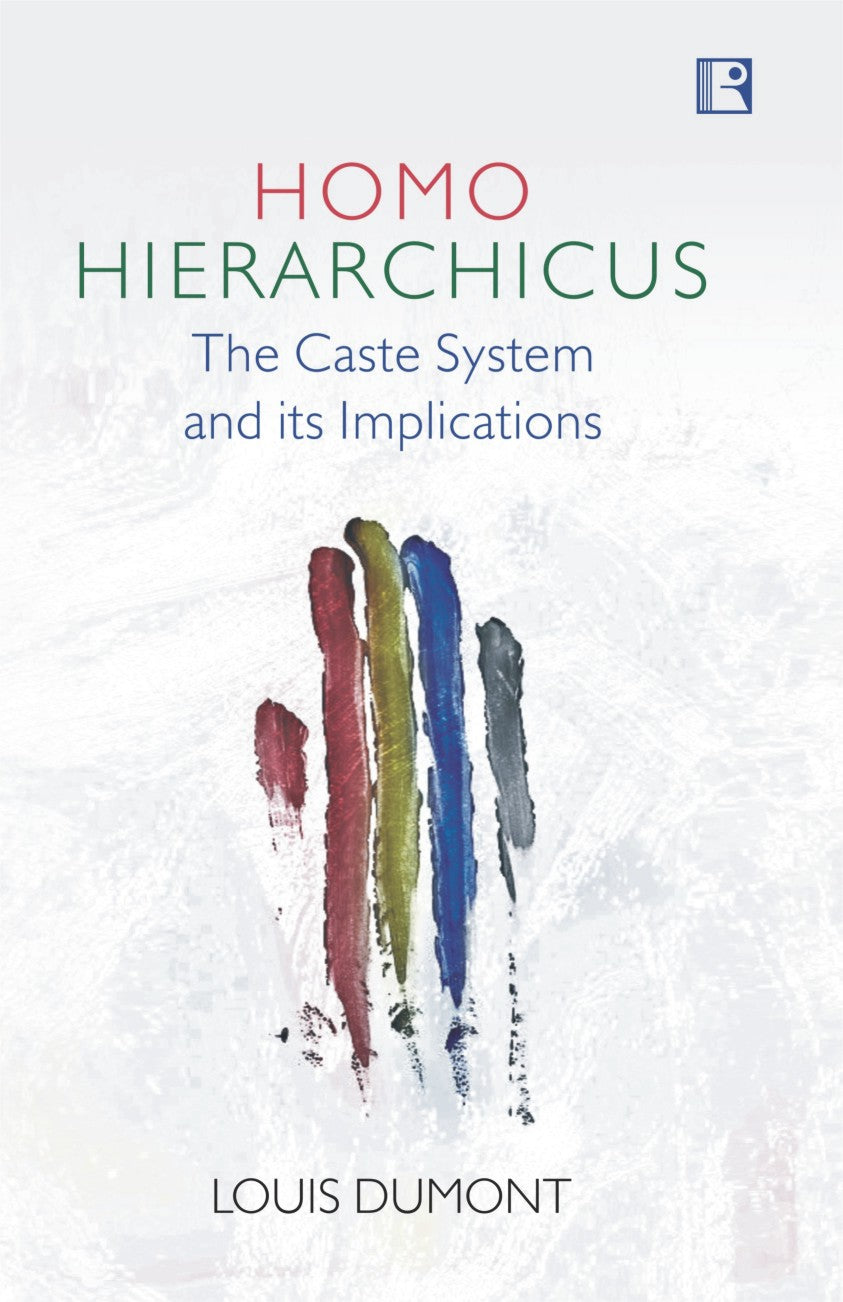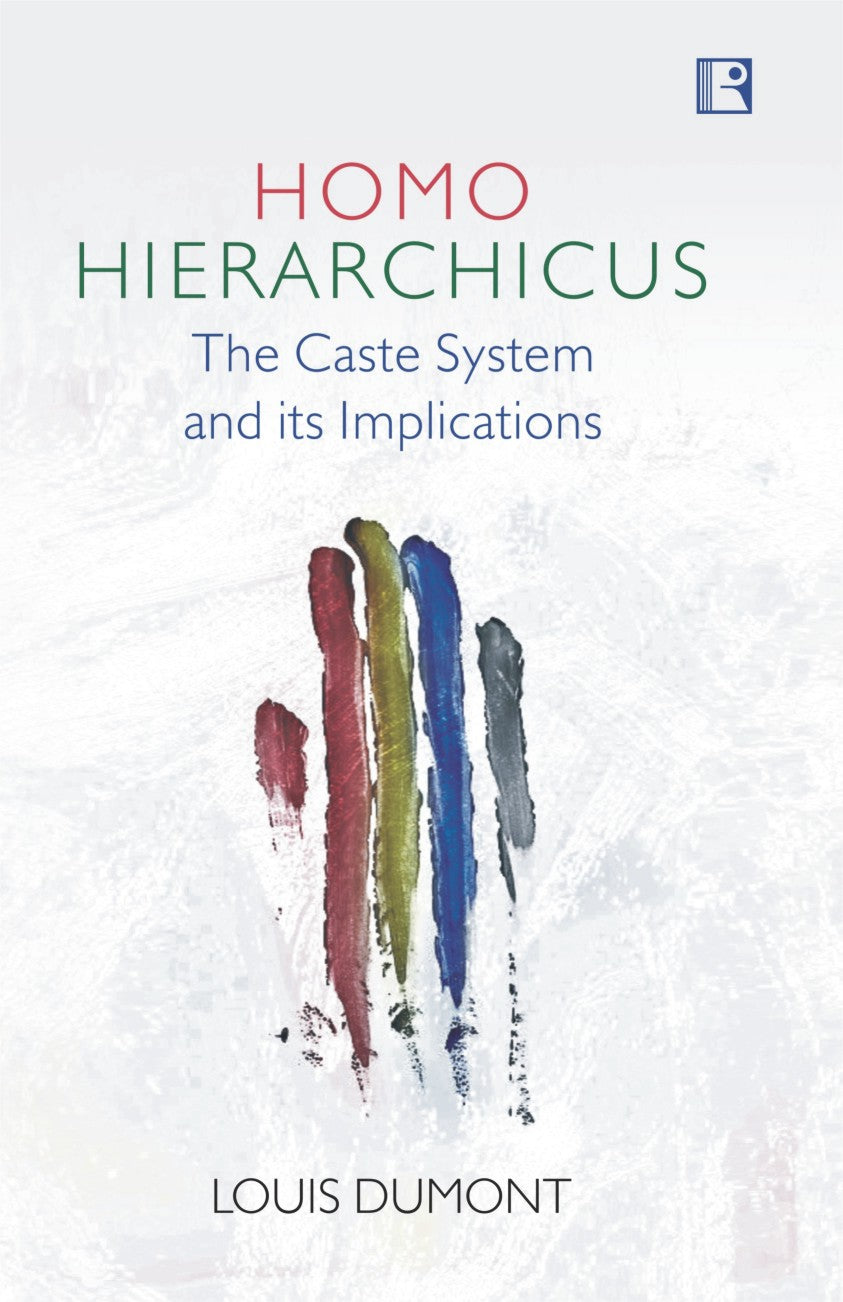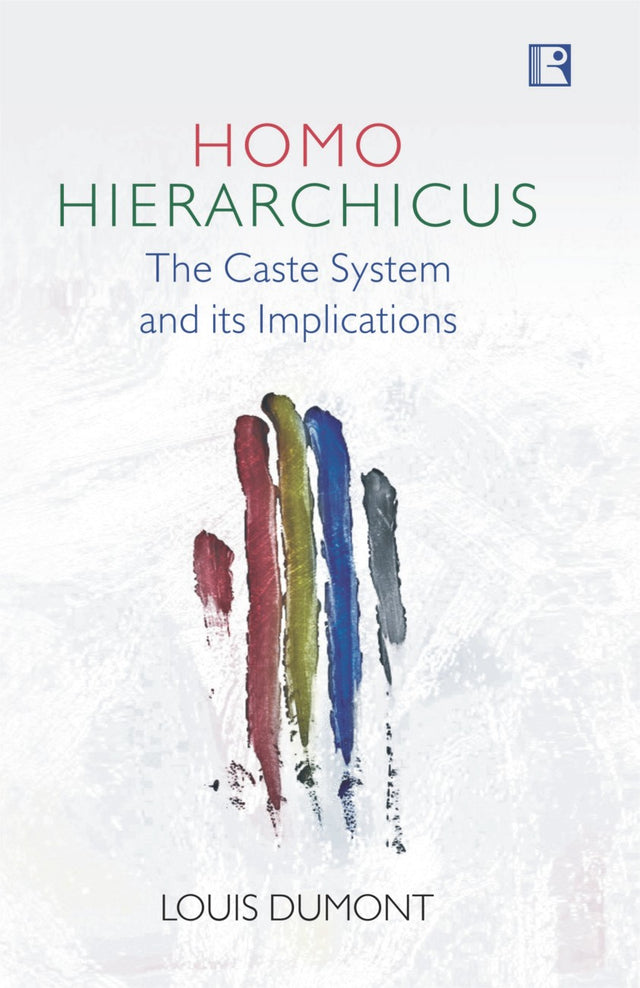HOMO HIERARCHICUS: The Caste System and its Implications
HOMO HIERARCHICUS: The Caste System and its Implications is backordered and will ship as soon as it is back in stock.
Couldn't load pickup availability
Genuine Products Guarantee
Genuine Products Guarantee
We guarantee 100% genuine products, and if proven otherwise, we will compensate you with 10 times the product's cost.
Delivery and Shipping
Delivery and Shipping
Products are generally ready for dispatch within 1 day and typically reach you in 3 to 5 days.
Book Details
-
Publisher: Rawat Publications
-
Author: Louis Dumont
-
Language: English
-
Cover: Hardback
-
ISBN: 9788131610947
-
Pages: 542
-
Publication Year: 2019
-
Sale Territory: South Asia
About the Book
Louis Dumont’s Homo Hierarchicus, now available in an enlarged, revised, and corrected second edition, remains one of the most significant contributions to the study of the Indian caste system. In this work, Dumont presents a cogent statement on the organizing principles of caste, weaving together ethnographic data with a philosophical understanding of its hierarchical ideology. This classic explores how ancient religious texts and ideologies have shaped and continue to govern the caste structure in contemporary India.
The book contrasts the Indian social order, as represented by homo hierarchicus (the hierarchical man), with the Western ideal of homo aequalis (the egalitarian man), offering a provocative comparison between societies based on their underlying ideologies. Dumont provides a detailed analysis of hierarchy, division of labor, marriage regulations, and social mobility, giving the reader a deeper understanding of caste in both historical and modern contexts.
This edition includes a new Preface in which Dumont addresses the academic discussions sparked by the original text and responds to his critics. A Postface, which explores the theoretical and comparative aspects of hierarchy, as well as three important Appendices, further enrich this already influential work. The revised edition is an invaluable resource for anyone interested in Indian sociology, social theory, or anthropology.
Contents
-
Introduction
-
History of Ideas
-
From System to Structure: The Pure and the Impure
-
Hierarchy: The Theory of the ‘Varna’
-
The Division of Labour
-
The Regulation of Marriage: Separation and Hierarchy
-
Rules Concerning Contact and Food
-
Power and Territory
-
Caste Government: Justice and Authority
-
Concomitants and Implications
-
Comparison: Are There Castes Among Non-Hindus and Outside India?
-
Comparison (Concluded): The Contemporary Trend
-
Postface: Toward a Theory of Hierarchy
About the Author
Louis Dumont (1911–1998) was a prominent French ethnographer and historian of ideas, widely recognized for his work on Indian caste and kinship. Dumont was one of the earliest modern field researchers in India, conducting ethnographic studies in both the southern and northern parts of the country. His most influential work, Homo Hierarchicus, has shaped scholarly discussions around Indian society and cultural anthropology.
Dumont was a lecturer at the Institute of Social Anthropology at Oxford University and co-founded the journal Contributions to Indian Sociology with David Pocock in 1957, which became one of the leading journals in South Asian studies. His work continues to be studied and cited in the fields of anthropology, sociology, and comparative social systems.





